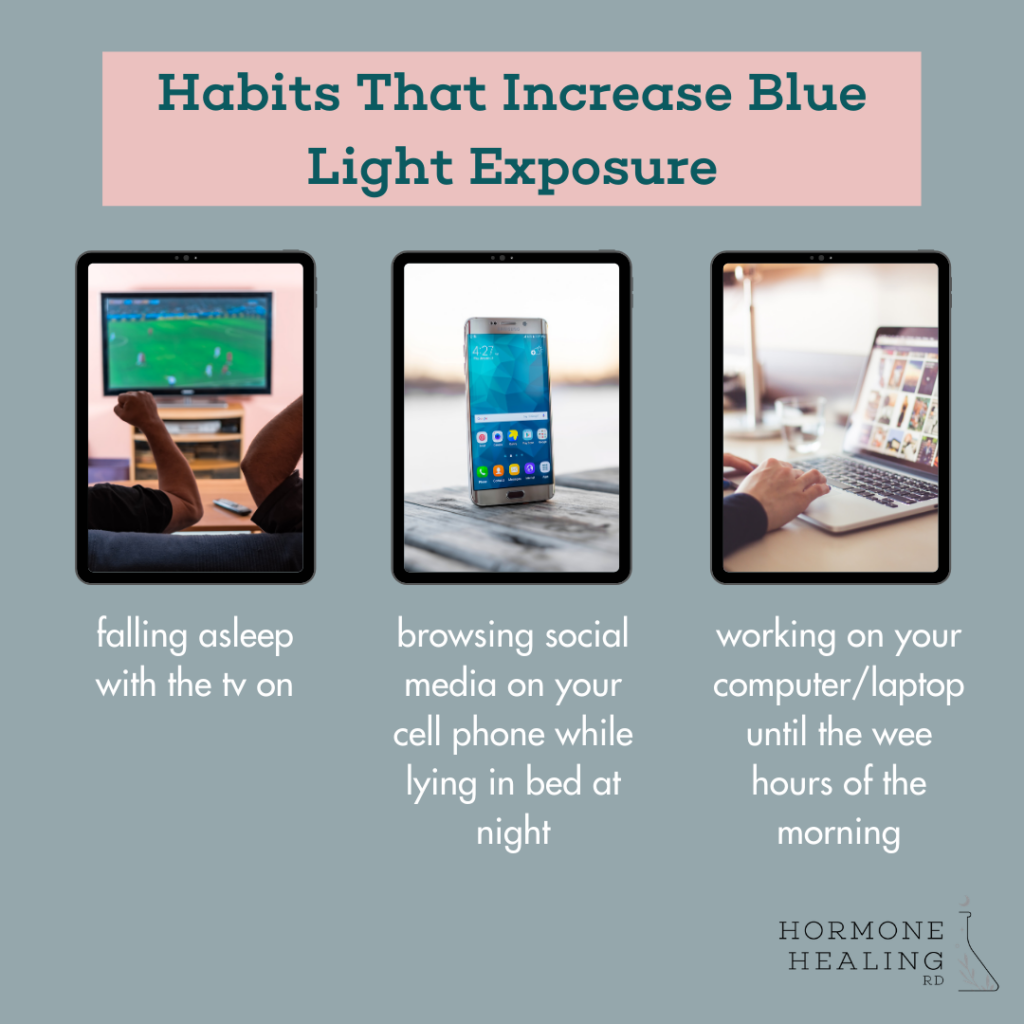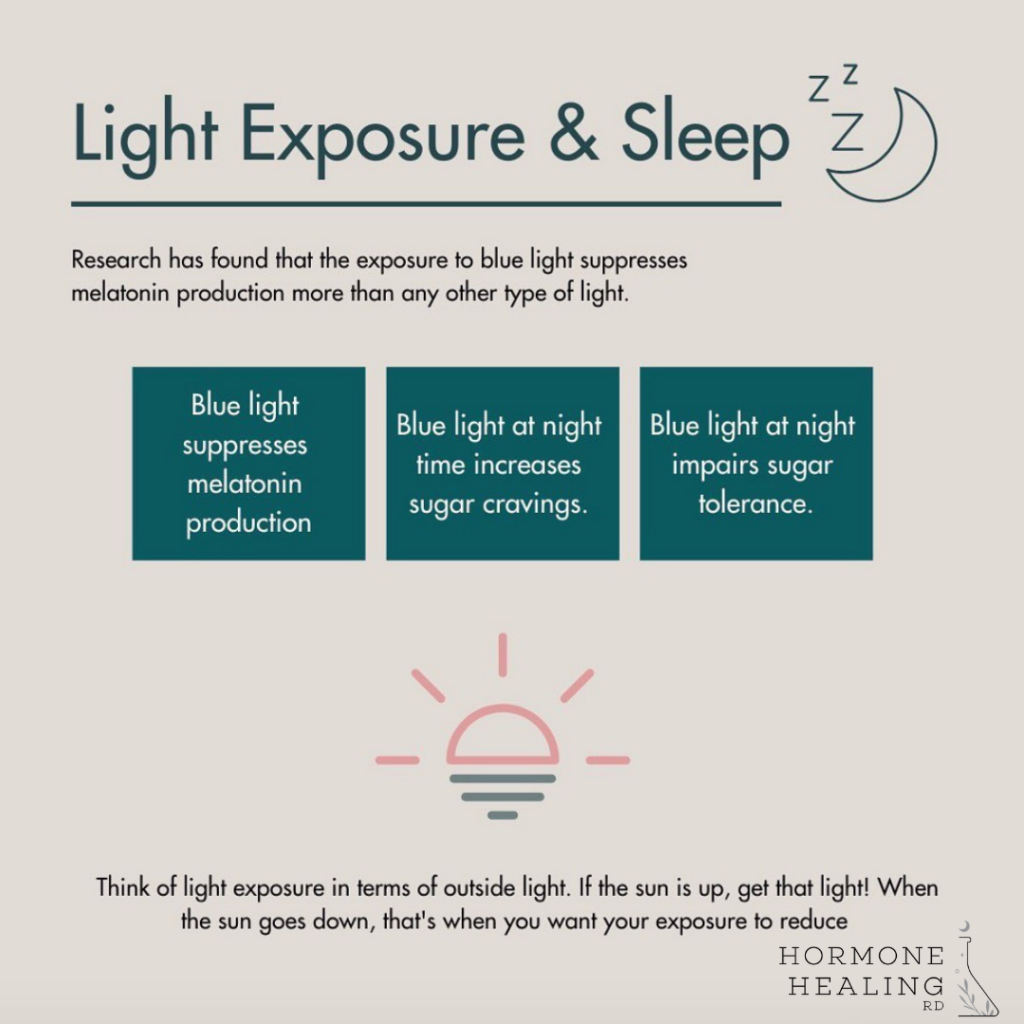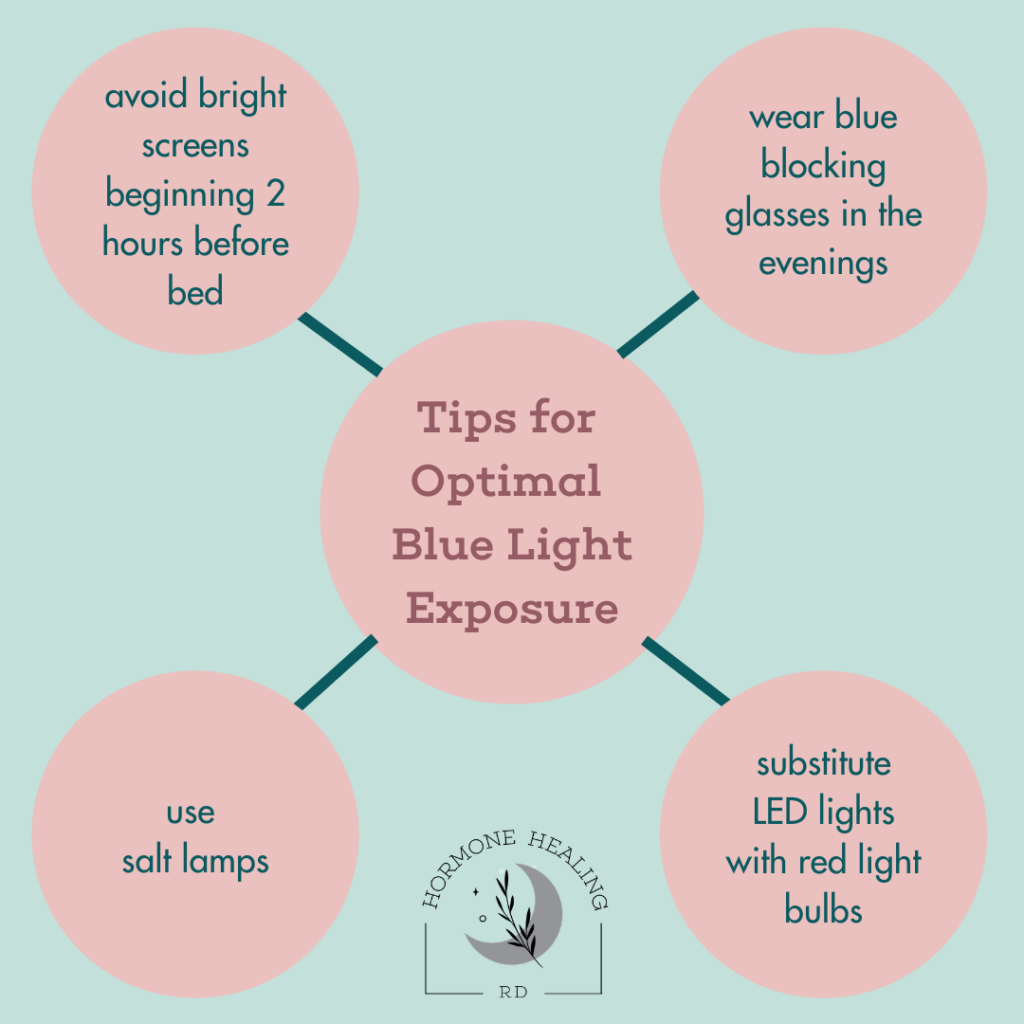Whether or not you struggle with sleep, your exposure to blue light matters. Blue light is beneficial during the day. It wakes us up during daylight hours, keeps us alert, gives us energy, boosts mood, etc. Once the sun goes down, though, many of us continue exposure to blue light with lights in our home and screens. Blue light can throw off your biological clock, AKA, your circadian rhythm, which has a huge impact on hormone health.
What is blue light?
Lighting varies in wavelength and intensity. Blue light comes from blue wavelengths and is considered artificial lighting. Blue lights are the energy-efficient LED lights and those emitted from electronic devices’ screens. Pretty much all age groups use electronic devices. When I say every age group, I mean just that–toddlers watching videos on tablets, teens on their cell phones, adults working office jobs, and the elderly watching television. All across the world, individuals are subjected to blue light daily, but the duration and time of day (night time) of the exposure are most critical. Studies suggest that blue light is most disruptive at night.
How does blue lighting affect sleep patterns?
How many of you are guilty of falling asleep with the tv on? Have you ever worked on your computer/laptop until the wee hours of the morning? What about browsing your social media while lying in bed at night? Trust me; you are not alone. These are not easy habits to break. However, it is important to limit blue light exposure at night. Why? It disrupts our circadian rhythm or sleep patterns. A Harvard research study found that 6.5 hours of exposure, blue light suppresses melatonin twice as much as the green light and shifts the circadian rhythm by twice as much (3 hours vs. 1.5 hours).
Melatonin plays a crucial role in regulating our sleep. Research has shown that blue light can suppress melatonin production. This can, of course, impact our ability to fall and stay asleep, but melatonin is a powerful hormone and antioxidant in the body that we also need for hormone health. It is especially important for the health and function of our ovaries.

What does disrupted sleep do to your hormones?
Sleep is strongly associated with hormone health. Levels of growth hormone are increased during sleep and at time of sleep onset. Individuals who experience frequently interrupted sleep have lower levels of growth hormone. The growth hormone increases our muscle mass, decreases our body fat, and controls metabolism. Disturbed sleep also interferes with thyroid hormones, cortisol, and insulin.

How can you reduce your nighttime exposure to blue light?
Think of light exposure in terms of outside light. If the sun is up, get that light! When the sun goes down, that is when you want you to reduce your exposure. Luckily, not all light is equal. Light comes in different wavelengths, and other forms of light can be utilized. Making small changes in your day-to-day life can support the reduction of blue light exposure.
Here are some tips for optimal light exposure:

Blue light is all around us, and for most of us, we are exposed to it for long periods. Increased blue light exposure affects our natural sleep patterns by throwing off our circadian rhythms. These sleep disturbances have a negative impact on our hormones and metabolic processes. Fear not! You can easily reduce your exposure. It is important to note that if you choose to wear blue-blocking glasses, you should not wear completely blocking ones indoors during daylight hours. Check back for my next blog, where I discuss the use of red light therapy.
Photo by Reginald Sebopela on Unsplash
